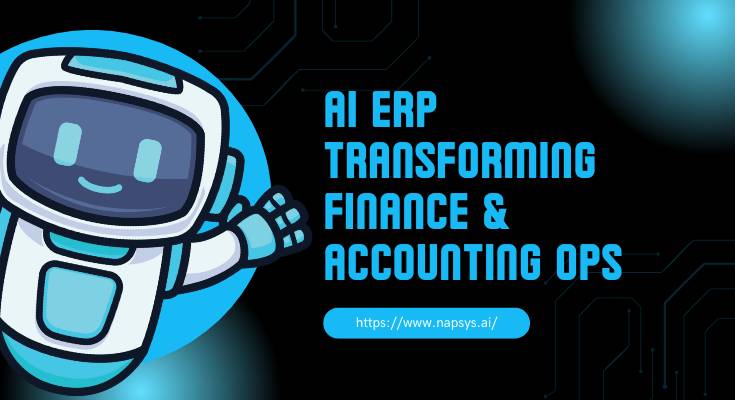


AI-powered ERP transforms finance by automating tasks, improving accuracy, and enabling real-time insights, forecasting, compliance, and smarter decisions.
Finance and accounting are the backbone of every organization. From managing cash flow to ensuring compliance, financial leaders are tasked with balancing precision, efficiency, and strategy. Yet, traditional accounting systems and manual processes often slow teams down, leaving them buried in spreadsheets instead of contributing to strategic growth.
Enter AI-powered Enterprise Resource Planning (ERP) systems, a new wave of technology that integrates artificial intelligence into core financial processes. Unlike traditional ERPs, AI-powered platforms automate repetitive work, deliver predictive insights, and provide real-time financial intelligence. For finance and accounting teams, this means less time spent crunching numbers and more time driving strategy.
In this article, we’ll explore how AI-powered ERP is reshaping finance and accounting operations, its key benefits, challenges, and the future of financial management in the digital age.
Most finance teams rely on a mix of legacy ERP systems, spreadsheets, and disconnected tools. While functional, these systems often create bottlenecks:
In a market where agility and data-driven decisions are critical, these shortcomings make it hard for finance leaders to support long-term business goals.
Artificial Intelligence brings intelligence and automation to ERP platforms. By embedding AI algorithms into finance modules, ERP systems can:
The result is a shift from reactive to proactive finance, where teams don’t just record numbers, but actively guide strategy.
Tasks like invoice matching, payroll processing, and bank reconciliations consume hours of manual effort. With AI-powered ERP, these are automated.
This reduces workload, eliminates repetitive errors, and frees accountants for higher-value work.
Traditional reporting often takes weeks after a period closes. AI-powered ERP generates real-time dashboards that show:
This shift allows finance teams to make timely adjustments instead of waiting for end-of-month surprises.
AI goes beyond reporting past events, it predicts future outcomes.
This empowers businesses to plan proactively, reduce risks, and optimize investments.
Compliance is one of the toughest challenges in finance. AI helps by:
Unlike manual audits, AI continuously learns from new data, making fraud prevention more accurate over time.
CFOs are no longer just number crunchers; they’re strategic advisors. AI-powered ERP provides decision intelligence by combining financial data with operational insights.
Examples include:
By leveraging these insights, finance leaders can align business strategy with financial health.
The shift to AI-powered ERP is more than a technology upgrade; it’s a transformation of finance itself. With NAPSYS.AI, finance teams can automate manual work, gain predictive insights, and ensure compliance seamlessly. By empowering teams to move beyond routine reporting and into strategic decision-making, NAPSYS.AI delivers agility, precision, and foresight. In today’s world, where every decision depends on accurate financial intelligence, the real question for leaders isn’t if AI will transform their operations, but how quickly they can embrace it to gain a competitive edge.
